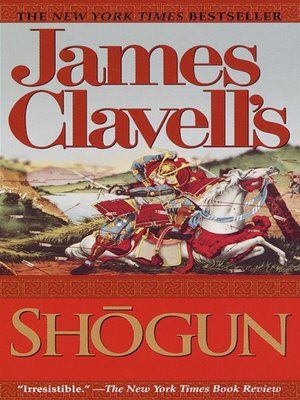


He becomes both pawn and instigator among some key players in Japanese politics, including the calculating samurai Omi, the sadistic feudal lord Yabu, and especially Tornaga, who is angling to become shogun, the supreme military commander. Shogun’s plot is difficult to summarize, but the gist is that John Blackthorne, an English ship captain seeking to establish trade with Japan, is taken prisoner along with his crew. For the length of his career as a novelist, Clavell, with his six-volume Asian Saga, was to East Asia what Stephen King was to horror. But for years, curled copies of the brick-like paperback were ubiquitous in suburban basements, thrift shops, and on blankets laid out by street vendors.

Recent queries to friends and acquaintances show that few have heard of the book, some having vague recollections of the mini-series made in 1980. The copiously detailed novelty of feudalist Japan sent imaginations reeling in airports around the world and for a brief while in this country, made an unprecedented number of readers interested in two topics normally anathema to Americans: geography and history. Clavell was a British WWII veteran, a screenwriter and film director who discovered a gift for complex plotting and how an affinity with the East could set off torrents of prose. This is a scene from James Clavell’s Shogun, an 1152-page samurai epic published in 1975 that became a pop culture sensation, selling something like 15 million copies. Later, he rues the fact that, due to other circumstances, he had not been able to step forward, to meet his death, and to have his fellow samurai fulfill his mission, for it would have accorded both him and her a noble death, “and men and women would have told the tragic tale for generations.” A tense stand-off ensues, broken when the leader acquiesces. When a samurai moves towards her, she raises a gun, pointing it at the leader. The prisoner, just beginning to become acclimated to the convolutions of Japanese manners and the obsession with honor, refuses, hands his guns to his consort, and instructs her to relinquish them only to him. Confronting the prisoner, he demands the prisoner’s guns. A samurai and his contingent enter a house to retrieve a prisoner at the behest of his feudal lord.


 0 kommentar(er)
0 kommentar(er)
